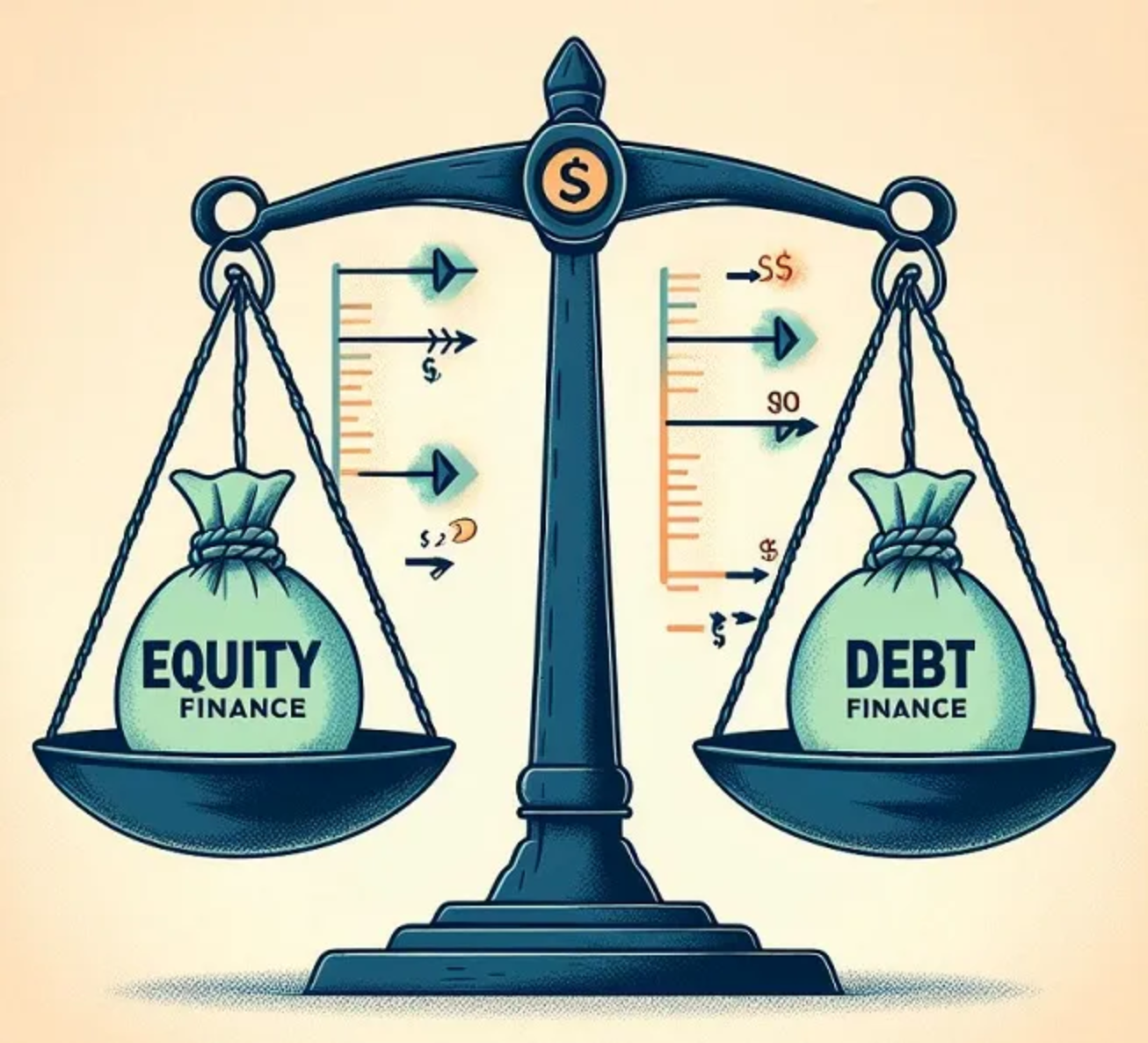What is the difference between Debt and Equity financing?
Equity and debt financing are two primary methods that businesses use to raise capital, and
these two methods differ in several key aspects:
1. Nature of Financing:
- Debt: Businesses are borrowing money from lenders, such as banks, financial institutions, or individual investors, with a promise of repaying the principal amount with interest, for a specified time period. Debt does not involve parting with ownership stakes in the firm.
- Equity: On the contrary, equity financing involves selling ownership stakes in the business to investors, in exchange for capital raised. These investors become shareholders, but they do not expect repayment of their investment like debt funders. Instead, they may receive dividends and stand to profit from capital appreciation, if the value of the business increases.
2. Risk and Return:
- Debt: The primary risk for businesses opting for debt financing, is the obligation to repay the borrowed principal amount plus interest, irrespective of the company’s performance. However, debt funders neither share the company’s profits nor have voting rights, so their returns are limited.
- Equity: On the contrary, equity investors take the risk of losing their capital, in case the company fails. As rewards to that risk, they have the potential to earn higher returns, if the company performs well, through dividends and capital appreciation.
3. Business Control:
- Debt: As the businesses opting for debt financing do not dilute ownership stakes, they don’t have to dilute control over the company.
- Equity: On the contrary, equity financing involves diluting existing ownership stakes as new shares are issued to investors. These new investors may gain voting rights and subsequently may have a say in important company decisions, depending on the terms of the investment agreed upon.
4. Cost and Flexibility:
- Debt: The cost of debt includes interest payments, which are typically fixed and tax-deductible. This method provides more flexibility in terms of scheduling the repayment, and debt funders can’t seek a share in the company’s profits.
- Equity: On the contrary, equity financing does not involve fixed payments like interest, however, may require sharing of the company’s profits with shareholders through dividends. This method can be more expensive in the long run, if the company becomes highly successful.
Both debt and equity financing have their advantages and disadvantages. The choice
between them depends on a variety of factors such as the business’ financial situation,
growth prospects, and current stage of business.
Tags
- Equity,
- Startup,
- Funding,
- Financing,
- Debt,
- Seed Capital,
- Loan,
- Risk
- Return,
- Business,
- Control,
- Felxibility,
- Raise Capital




